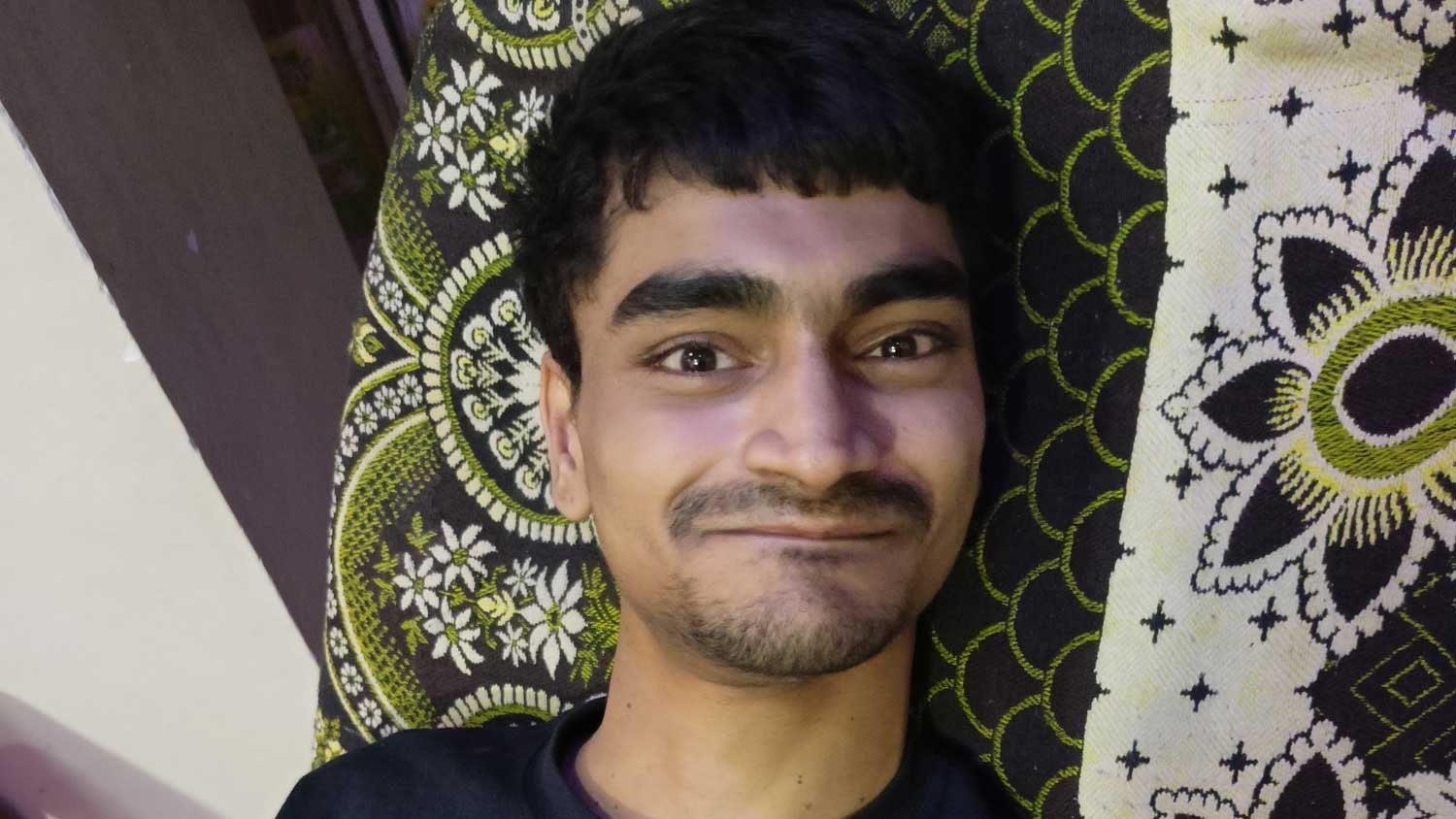I was born at home instead of in the hospital. During the home birth, my brain didn’t get enough oxygen, and that’s why I have cerebral palsy.
My dad was stationed in Shillong, a city in the Indian state of Meghalaya. He was in the Indian Army. During my mother’s pregnancy, my position in her womb was good at the completion of eight months. My parents had started their journey from Shillong (Meghalaya) to Washim (Maharashtra) because my grandmother had asked them to come to their home in Washim for the delivery. They had to complete at least a 4–5 hours journey by bus (from Shillong to Guwahati, Assam), which was hilly, and the seats on the bus were uncomfortable. It was a bumpy ride. After that, they began their train journey (from Guwahati to Washim), and when they arrived home after two days, my mother went to the bathroom repeatedly. But she wasn’t urinating; she was discharging amniotic fluid. She didn’t feel any pain like that of delivery.
Actually, my grandmother is an old thinker and very superstitious. She had called a Dai Maa instead of a doctor for home delivery purposes. Dai Maa is a midwife – a person who is trained to help women give birth. I was born after a period of eight months and four days. My weight at the time of birth was 3.3 kg, and when I was born, I didn’t cry for the first 10 minutes. My body, from head to toe, was not responding like it would have if my mother had no issues with my delivery.
Even with these problems, and after my birth, my grandmother would still not allow us to go anywhere outside the house until the umbilical cord falls off on its own. Going out of the house before is considered a bad omen according to my grandmother. After 12 days, when my umbilical cord fell off, we went to the hospital. At that time, a doctor said that we were already too late to be admitted to the hospital. The doctor said that I wouldn’t live for long… although I did.
If we had gone to the hospital right away, it’s possible I would have had a cesarean birth, and I would be living like a normal person today. But when I could not sit up or keep my neck steady, my father took me to doctors at the Military Hospital in Shillong, where I was diagnosed with cerebral palsy. My parents were heart broken to learn from the doctor that I had cerebral palsy and that I would be confined within four walls for the rest of my life. The doctors said that I could not control my body due to cerebral palsy. A doctor estimated that my movement would be 1/4th of that of other children, and it was not possible to say whether it would improve in the future.
Cerebral palsy has greatly affected my physical, emotional, and mental health, making it difficult to live a normal life. I have limited mobility and suffer, which makes it hard to participate in activities and live independently.
I often need help with basic tasks, like getting dressed, taking shower, eating, etc. For all these I am completely dependent on my family. I cannot speak properly. But I used my disability to prove my ability. And I can use my toe to operate a computer, a phone, and other devices. My feet function kind of similar to other people’s hands. And I want people like me to see that they shouldn’t let a disability get in their way. Also, I never went to school. I struggle with speech, communication, and learning disabilities due to the damage to my brain. But I still try to lead as normal a life as possible by focusing on my strengths. I am determined to stay positive and make the most of what I have. I’m learning to accept my condition and make the best of it. My disability won’t define me, but instead it will be a part of who I am.
At the end, I just want to say thank you all for reading my post. As we navigate life’s ups and downs, it’s important to remember to take our time and think through our decisions carefully. Before taking any steps, big or small, it’s important to think about the potential outcomes and make sure we’re making the best choice for ourselves. Before taking any important steps, it’s crucial to take the time to think about what the consequences of those actions may be. Remember to take your time and think carefully before taking any important steps. You never know what the future holds, so it’s important to make thoughtful decisions that will help us create the best possible outcomes for ourselves and those around us.
Use the citation below to add this article to your bibliography
"The Cost of Mistakes: Lives Forever Changed by a Single Wrong Decision." Wecapable.com. Web. June 5, 2025. <https://wecapable.com/cost-of-mistakes-lives-forever-changed-by-a-single-wrong-decision/>
Wecapable.com, "The Cost of Mistakes: Lives Forever Changed by a Single Wrong Decision." Accessed June 5, 2025. https://wecapable.com/cost-of-mistakes-lives-forever-changed-by-a-single-wrong-decision/
"The Cost of Mistakes: Lives Forever Changed by a Single Wrong Decision." (n.d.). Wecapable.com. Retrieved June 5, 2025 from https://wecapable.com/cost-of-mistakes-lives-forever-changed-by-a-single-wrong-decision/


Dear Ritesh,
Thank you so much for sharing your incredible story and encouraging us to make the best of every day. It is so true, we have to think carefully before making important decisions as they can deeply impact our or others’ lives.
I live in Germany, but thanks to the internet, I could read your post. I work as a teaching assistant in a high school, helping a boy with multiple disabilities who is very cheerful and funny during lessons and recess. I wish you had similar help when growing up!
I wish you all the best1 Stay positive and curious! Maybe you could write a book about your personal experiences?
Kind regards,
Britta